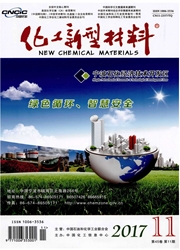

 中文摘要:
中文摘要:
为了有效处理寒冷地区废水中的重金属,研究了耐低温真菌对水体中铅(Pb2+)的生物吸附规律。首先从寒冷地区土壤样品中分离筛选到低温优势菌株PWK6,然后采用此菌株作为生物吸附剂,对水体中的Pb2+进行吸附实验,对其吸附能力、吸附速率、吸附性能及多级吸附效果进行研究。结果表明:PWK6菌株属于低温真菌,该菌株在4℃~25℃范围内对溶液中的Pb2+有较强的吸附作用,15 min即达到吸附平衡。Pb2+浓度在5~200 mg/L范围内,该菌株的生物吸附符合Langmuir等温吸附模型。在实验条件下,对100 mg/L的Pb2+溶液进行5级吸附后达到国家污水综合排放标准。
 英文摘要:
英文摘要:
Abstract: The biological adsorption of lead ions in water using low-temperature fungi was studied in order to efficiently deal with the heavy metals of wastewater in cold areas. PWK6 was obtained from the soils in cold areas and was used as a biological absorbent for adsorption experiment of lead ions in water, to study its adsorption capacity, adsorption rate, adsorption properties and multi-stage adsorption. The results showed that PWK6 strains was a low-temperature fungi and had strong adsorption capacity for lead ions in solution from 4 ℃ to 25 ℃, adsorption equilibrium was achieved in 15 minutes. The biological adsorption of PWK6 strains accorded with Langmuir model when the concentration conditions, the 100 mg/L of lead ions in after 5-stage adsorption. of lead ions was from 5 mg/L to 200 mg/L. Under experimental solution achieved the national integrated wastewater discharge standard
 同期刊论文项目
同期刊论文项目
 同项目期刊论文
同项目期刊论文
 期刊信息
期刊信息
